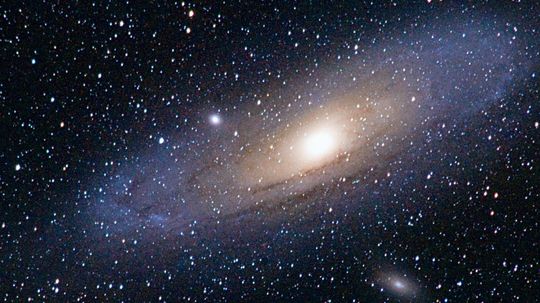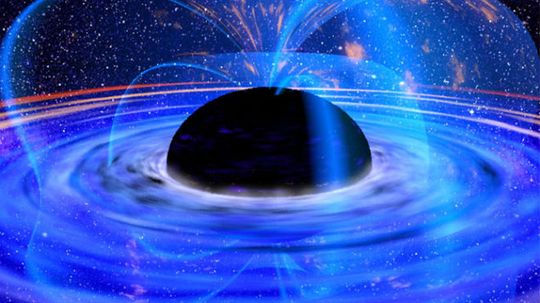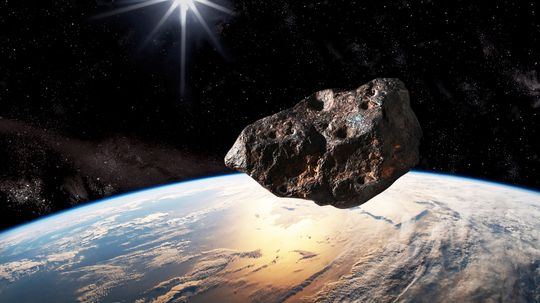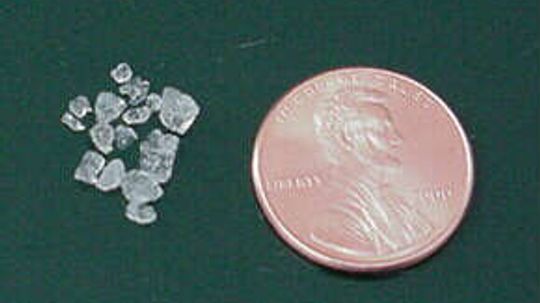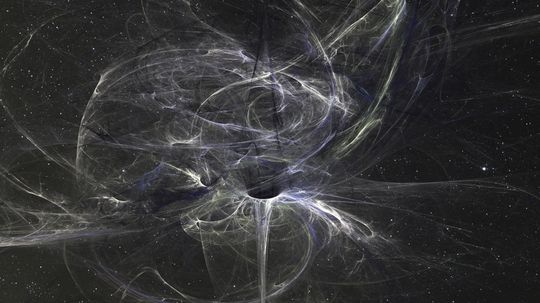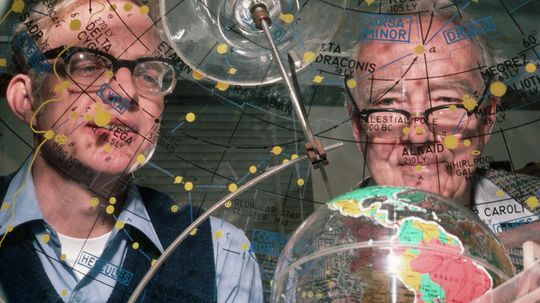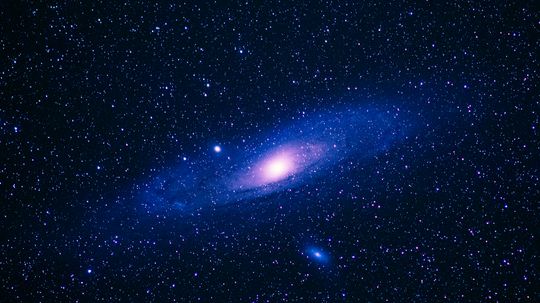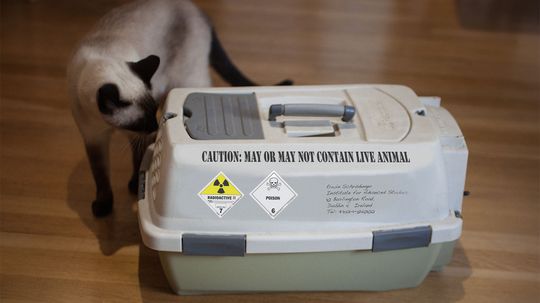Science Dictionary
Do you know what a meteor is, or what scientists mean when they are talking about cryogenics? Our collection of science terms explains the meaning of some of the most common scientific ideas.

10 Scientific Words You're Probably Using Wrong

Can a planet float on water?

Can You Nominate Yourself for a Nobel Prize?

How Do You Win a Nobel Prize?

What Are the Masons?

Quiz: How Much Do You Know About Stephen Hawking?
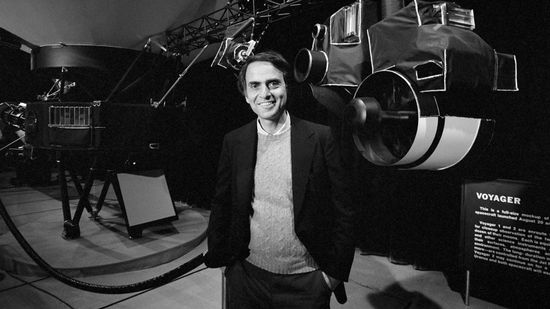
10 Cool Things About Carl Sagan

10 Cool Things About Neil deGrasse Tyson
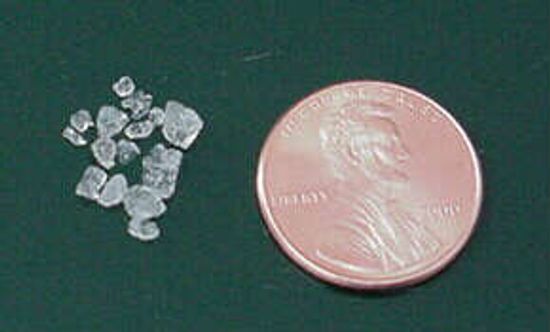
How do polymer crystals work and why do they absorb so much water?

Is a Karat the Same as a Carat?
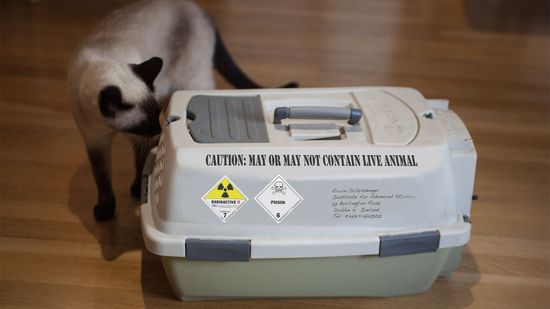
4 Quantum Physics Misconceptions, Busted

Chaos Is Not Randomness: A Complex Systems Scientist Explains
Learn More / Page 2
Have you ever really thought about the scale of the universe? A good starting point is the teaspoon.
If you took all of the matter in the universe and you pushed it all into one corner, how much space would it take up? I am trying to understand how much of the universe is 'empty.'
How does 24-karat gold relate to a 1-carat diamond in an engagement ring? It turns out there's a difference between these identically sounding measurements.
Advertisement
A light-year is a way of measuring distance, which doesn't make much sense because "light-year" contains the word "year," which is normally a unit of time. So, how does a light-year measure distance?
Comets are remarkable pieces of our universe's past, and they tell us a great deal about how the universe was formed. Learn about the long but rewarding process of discovering and analyzing comets.
A black hole occurs when a massive star dies -- its enormous mass implodes and becomes so heavy that it bends space. So how do astronomers detect something that they can't see?
We take much for granted about our universe, like it's getting bigger. What if the universe stopped expanding and started collapsing inward with a giant crunch?
Advertisement
The man immortalized on the left was behind the three laws of motion and the universal law of gravitation. He was also competitive, temperamental and fascinated with alchemy. How well do you know Newton?
Who are the Freemasons? And what do they do in their secret meetings?
For decades, stargazing scientists have been facing their own darkness on the edge of town as they try to explain one of astronomy's greatest mysteries: dark matter. Have they been successful, or will the universe carry its secrets for a long time?
Space collisions are the universe's car wrecks. Only in outer space, it's stars, asteroids and even galaxies doing the smashing.
By John Fuller
Advertisement
What exactly are asteroids? And what was the NEAR Shoemaker mission about?
Polymer crystals are amazing in that they can absorb many times their size. In fact, one pound of these crystal flakes can hold up to 50 gallons of water. Find out what these polymer crystals are and why they are able to absorb so much water.
How do scientists find details about the early days of our solar system? One way is to investigate comets. Find out how the Deep Impact spacecraft fired an impactor into Comet Tempel 1 to get some answers.
By Carolyn Snare
Everyone knows that nothing travels faster than the speed of light, but how does the speed of dark compare? Read on to find out!
By Bambi Turner
Advertisement
If you have a theory that potato chips are making you fat (with the proof being your expanding waistline), you've just used two scientific terms in a very unscientific way.
By Beth Brindle
He built President Eisenhower an indoor golf-training machine, analyzed the Zapruder film and searched for an Egyptian pyramid's treasure chamber using cosmic rays. Aren't you dying to meet this wide-ranging scientist?
The man who had some theories about relativity was also an eccentric who gleefully eschewed socks, dodged German military service and spurned social conventions.
So much about galaxies remains a mystery. We know what they're made of and that we live in one (the Milky Way), but how many galaxies are in the universe?
Advertisement
Having one Nobel Prize winner in the family is a huge accomplishment. But the extended Curie family had five winners – and one was even awarded twice. How did they get so smart?
Nobel prizes offer lots of prestige and big payouts. But how do you become eligible for one? And can you lobby for yourself?
By Dave Roos
Planck's constant, which made an appearance in the Netflix series "Stranger Things," is one of the most important differences between reality at the atomic and subatomic level and what we can see around us.
As much as we might like to think that our collective knowledge has unlocked most of the mysteries of the universe, we’ve really only got a hold on a tiny fraction of the knowledge required to fully understand it all—and it’s a weak hold at best. But every once in a while a new theory […] The post 12 Of The Most Mind-Blowing Scientific Theories Ever Conceived appeared first on Goliath.
By Wes Walcott
Advertisement
From astronauts to doctors to an archaeologist, we present eight scientists whose contributions to science, engineering and math were inseparable from their identities as Indigenous Americans.
By Dave Roos
Questions, theories and debates about quantum physics can get muddled because of a number of myths and misconceptions. Here are four of them.

